D1.2 Roadmap of the research team in SDWM
1 Introduction
1.2 SWOT (Strengths, Weaknesses, Opportunities and Threats)
The UPB team performs its research activities in the context of the Romanian higher education and research landscape. According to SCImago country ranking, Romania is on place 41, with 167 H index, while the country placed on the first position has a value of 1648 for the H index (http://www.scimagojr.com/countryrank.php).At country level, there has been a continuous evolution of the quality parameters, the best achievements being registered in 2013, as presented in Table 1. However, there are some differences, regarding the subject area.
Table 1. Romania’s ranking based on h-index.
|
Romania's position |
Rank |
|
Computer Science |
34 |
|
Computer Science - Artificial Intelligence |
28 |
|
Computer Science - Signal Processing |
33 |
|
Computer Science - Computer Networks and Communications |
34 |
|
Computer Science - Information Systems |
36 |
|
Engineering |
31 |
|
Engineering - Control and Systems engineering |
29 |
|
Engineering - Safety, Risk, Reliability and Quality |
34 |
|
Environmental Science |
39 |
|
Environmental Science - Management, Monitoring, Policy and Law |
15 |
|
Environmental Science - Environmental Engineering |
24 |
|
Decision Sciences |
34 |
|
Decision Sciences - Information Systems and Management |
21 |
|
Decision Sciences - Statistics, Probability and Uncertainty |
46 |
|
Multidisciplinary |
43 |
A brief overview on national level, shows the difference between the countries involved in the project, regarding the scientific output (documents) - Fig. 1 and the international collaborations - Fig. 2.
Figure 1. All subject areas - Documents.
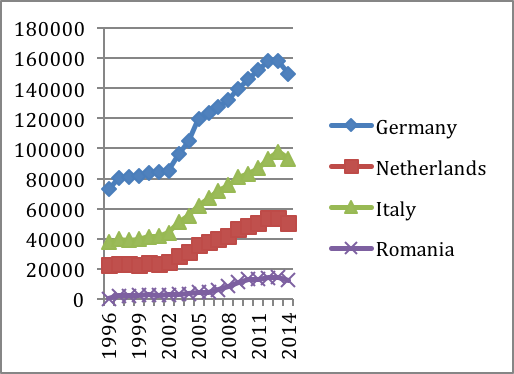
Figure 2. All subject areas – International collaboration.
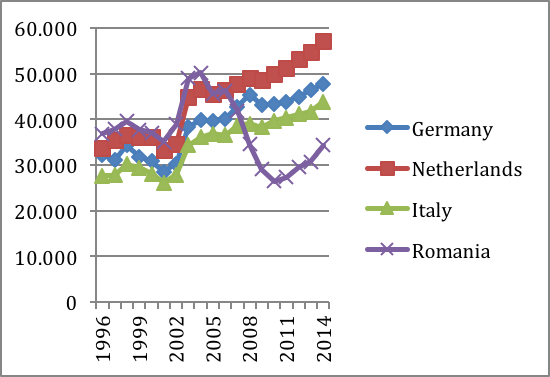
The trends for specific subject areas are similar, showing that Romania is behind the partner countries, having an upward trend for the scientific output, as shown in Fig. 3, for Computer science and in Fig. 4 for Environmental sciences.
Figure 3. Computer science – Documents.
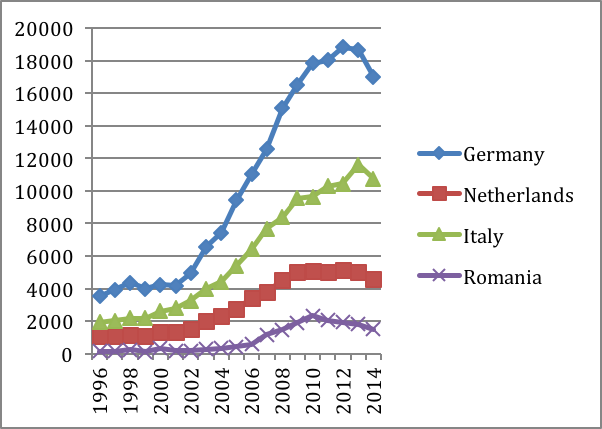
Figure 4. Environmental sciences – Documents.
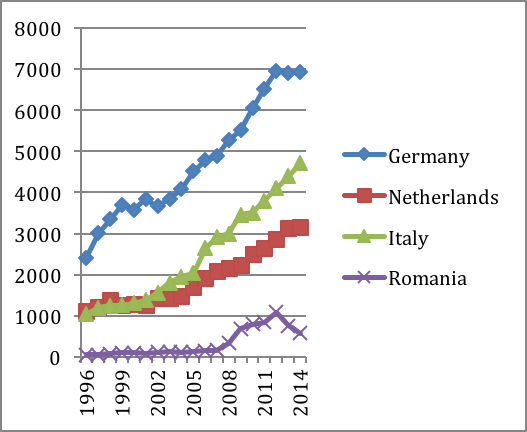
Regarding the international collaboration, ups and downs can be observed. The number of international collaborations registered in the Computer science and in the Environmental sciences, for Romania, are comparable with those of the partner countries, as shown in Fig. 5 and 6, and represent a opportunity for joining the international research teams.
Figure 5. Computer science – International collaboration.
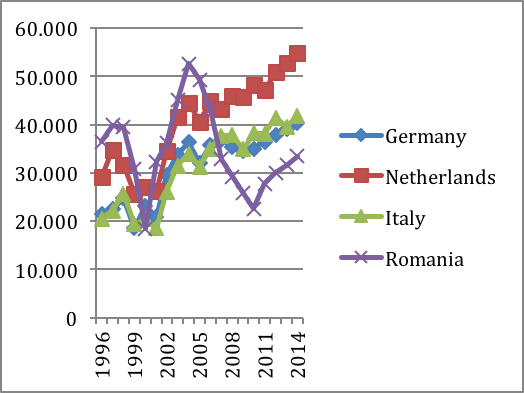
Figure 6. Environmental sciences – International collaboration.
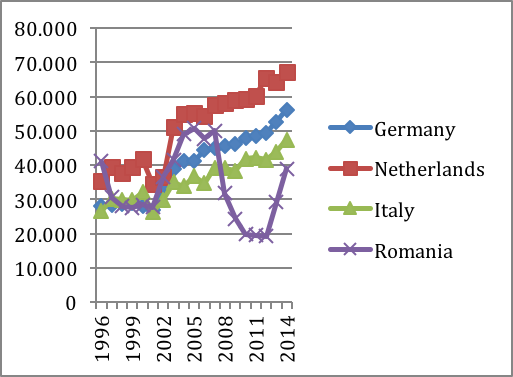
The UPB team, involved in the project, aiming the enhancement of the KPI in the field of smart data for water management is based in the University Politehnica of Bucharest, at the Computer Science Department.
The Strengths of the research team related to the subject area of the project are:
- The research team has a both broad and in-depth knowledge in the field of computer sciences.
- It has tradition in research, in ICT, gained through participation at more than 20 national and 15 international projects, and reflected in more than 500 papers, and 30+ book chapters/books.
- The strong link between education and research: we award bachelor, master and PhD degrees, in the research team we involve both PhD supervisors and PhD students.
- We have modern facilities, in a new research base, dedicated specially for researches computer science and control systems.
- The particular strengths are in development of middleware solutions for distributed systems, in design of composite and IoT architectures and in development of analytics for complex systems.
The Weaknesses we are aware of are:
General weaknesses:
- Lack of staff, involved exclusively in research, in the university. Research is done basically by teaching staff, that are overloaded with teaching and administrative tasks;
- Diminished interest in research activities, towards young graduates, due to the wage gap between research and the labour market;
- Lack of administrative support from the university level;
- Unstable, unpredictable financing.
Specific weaknesses:
- Unfocused researches – spread of research topics;
- Few transfers of research results in industry;
- Few results in interdisciplinary researches;
- Although the scientific output is high, the articles/papers in high ranked publications/conferences is modest.
We are aware of the following Opportunities:
- Both ICT and Environmental research are major topics in the Smart Specialisation Strategy of Romania;
- The D4W project gives us the possibility to enhance our weaknesses;
- Research is a major component of the evaluation process of the QA in higher education in Romania and of the teaching staff.
The Threats we identified are:
- Unstable and insufficient financial support for research;
- Not enough involvement of universities in technological transfer, and interest from the side of companies towards research;
- Research projects for companies are not taken in account in the research evaluation;
- Increased loose of interest of young specialists for research.